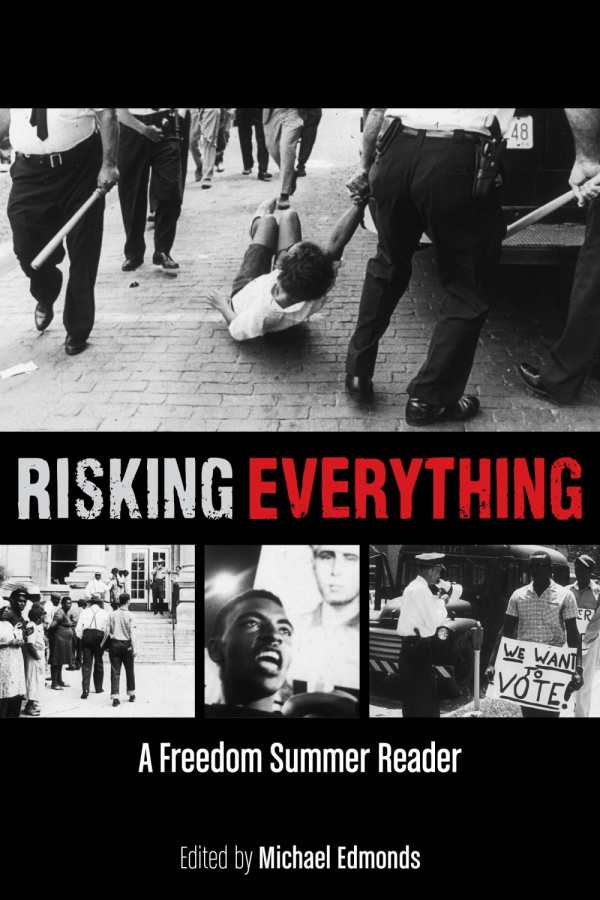Risking Everything
A Freedom Summer Reader
This moving collection reminds Americans of the determination of the people involved with Freedom Summer.
By 1964, life for most black Mississippians had reached the breaking point: only 1 percent were registered to vote and the other 99 percent would likely have been beaten, lynched, or shot if they had tried. This collection of forty-four documents well represents the 25,000 pages of the Freedom Summer digitalized collection housed at the Wisconsin Historical Society. Risking Everything vividly tells the first-person stories of the local black citizens and 1500 mostly white northern activists who pushed back against politicians, law enforcement, and the educational bureaucracy of the most segregated state in the USA.
Editor Michael Edmonds, deputy director of Library and Archives, includes black-and-white photographs that capture events, writes an introduction that concisely summarizes Freedom Summer, and concludes with an afterword about the collection’s fascinating genesis. Although this is not the largest collection of civil-rights documents, it is one of the most highly regarded because it emphasizes grassroots workers and local citizens.
Freedom Summer was largely a voting-rights drive led by the Student Nonviolent Coordinating Committee. Although SNCC leaders knew a broad voter registration campaign would fail, it did succeed in providing records for future law reforms—most significantly the 1965 Voting Rights Act. Freedom Summer did not get off to a good start; it began with the murder of three civil-rights workers, an indelible event horrifyingly recounted in this book by newsman Louis Lomax. By the end of Freedom Summer, six people had been murdered, twenty-nine had been shot, and fifty houses, churches, and other buildings had been bombed.
The two other major goals of Freedom Summer are described in several documents. The establishment of Freedom Schools met with more success than voter registration. Teachers offered lessons in literacy and black history to 3,000 students in 175 schools. The other goal, the creation of the Mississippi Freedom Democratic Party, failed to unseat Mississippi’s segregationist delegation at the 1964 Democratic convention.
Several of the documents are compelling letters home from activists who describe how they were changed by meeting many generous, brave Mississippians willing to sacrifice their lives. Some documents are prosaic listings of rules and regulations that volunteers were required to follow. This collection might have been better served by including more interesting first-person letters and accounts.
Overall, though, this is an excellent record of Freedom Summer, as told by its participants.
Reviewed by
Karl Helicher
Disclosure: This article is not an endorsement, but a review. The publisher of this book provided free copies of the book to have their book reviewed by a professional reviewer. No fee was paid by the publisher for this review. Foreword Reviews only recommends books that we love. Foreword Magazine, Inc. is disclosing this in accordance with the Federal Trade Commission’s 16 CFR, Part 255.

